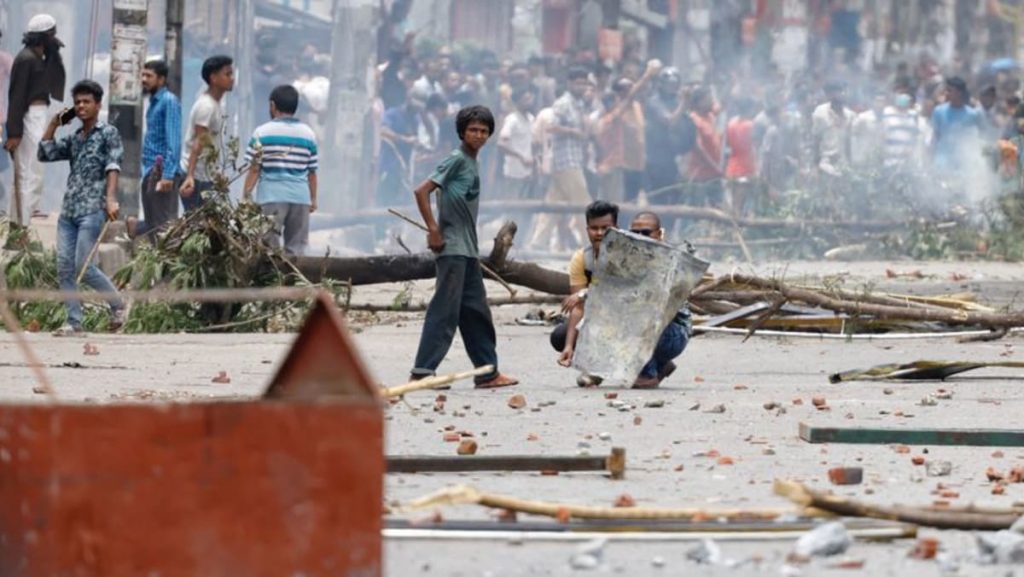At the core of the recent unrest in Bangladesh is the ongoing clash between student demonstrators and police, resulting in the deaths of at least 105 people. This violence has posed a significant challenge to Prime Minister Sheikh Hasina’s government, which has been in power for 15 years. In response to the escalating situation, the government announced the imposition of a curfew and the deployment of military forces to assist civilian authorities in maintaining order.
The decision to impose a curfew and involve the military was made after efforts by the police to control the situation failed. The implementation of the curfew was immediate, highlighting the urgency of the government’s response to the growing unrest. Additionally, all public gatherings were banned in Dhaka, the capital, in an attempt to prevent further violence and ensure public safety. Despite these measures, clashes between protesters and law enforcement continued, signaling the determination of the demonstrators to push forward with their demands.
The protesters, who are demanding the immediate resignation of Prime Minister Hasina, remain steadfast in their resolve to continue their demonstrations. The internet shutdown, intended to disrupt the coordination of rallies, has not deterred their efforts. In the midst of the chaos, student protesters reportedly stormed a jail in Narsingdi, freeing inmates and setting the facility on fire. The exact number of inmates affected by this incident remains unknown, but it is believed to be significant.
The situation in Bangladesh reflects deep-seated tensions and grievances against the current government, with the prolonged tenure of Prime Minister Hasina coming under increasing scrutiny. The violent clashes between students and law enforcement highlight the growing unrest and dissatisfaction among the populace. The government’s decision to impose a curfew and deploy military forces underscores the severity of the crisis and the urgency of restoring order.
As the violence continues and the death toll rises, the international community watches closely as Bangladesh grapples with its worst unrest in years. The impact of these events on the political landscape and the wider implications for the future of the country remain uncertain. The resilience of the protesters and the government’s response will shape the outcome of this crisis and have lasting repercussions for Bangladesh. Efforts to address the underlying issues driving the unrest will be crucial in resolving the conflict and preventing further escalation.















